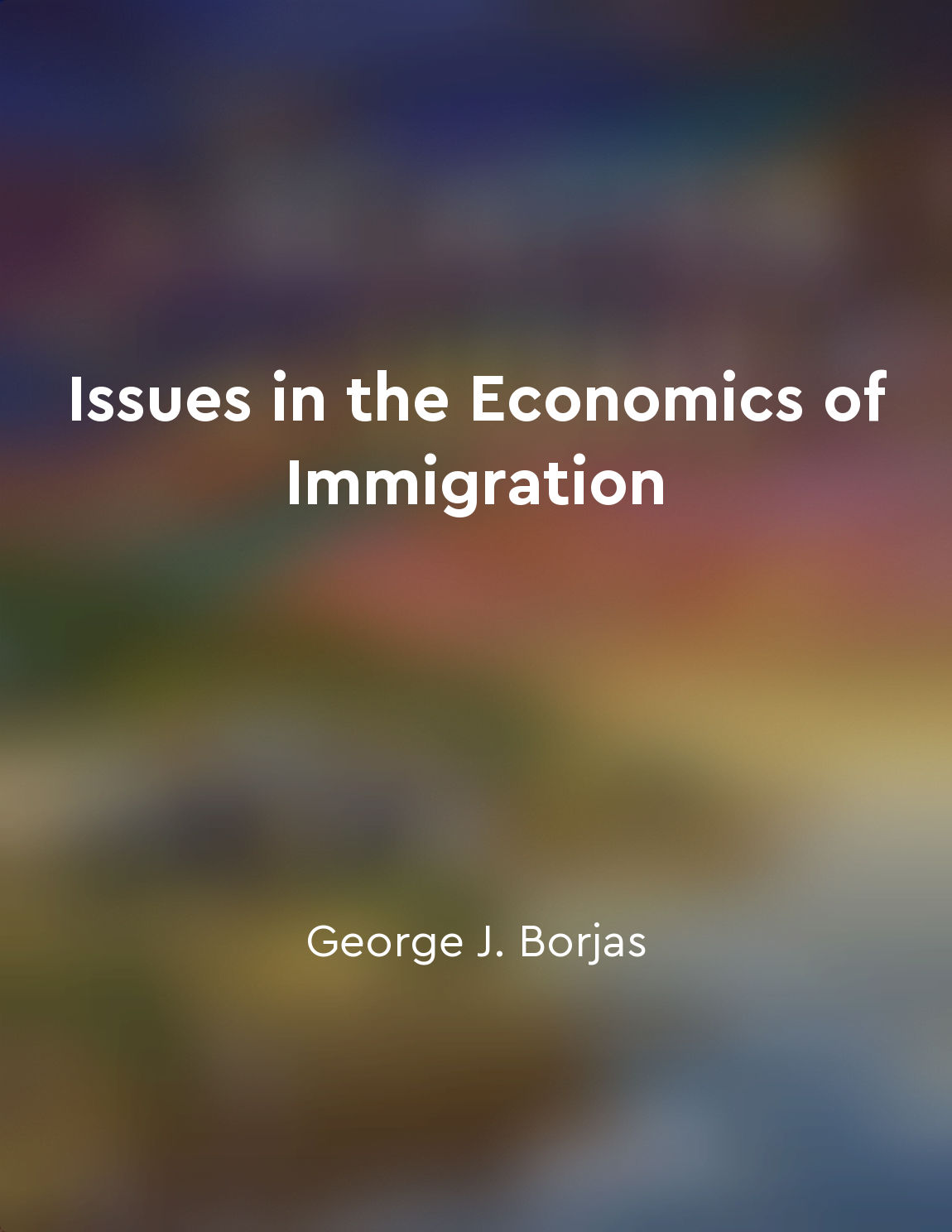The fiscal impact of immigration is a major point of contention from "summary" of Issues in the Economics of Immigration by George J. Borjas
The fiscal impact of immigration is a major point of contention among policymakers, scholars, and the public. This issue revolves around the question of whether immigrants contribute more in taxes than they receive in government benefits, or if they are a net drain on public resources. Advocates of high levels of immigration argue that immigrants pay taxes, which helps fund government programs and services. They point to studies that show immigrants are more likely to be of working age and have higher labor force participation rates than native-born individuals. This means they are more likely to contribute to the tax base through income taxes, Social Security contributions, and other taxes. On the other hand, critics of immigration raise concerns about the potential strain that immigrants may place on government resources. They argue that immigrants, particularly those with lower levels of education and job skills, are more likely to rely on government assistance programs such as Medicaid, food stamps, and housing subsidies. This can increase the burden on taxpayers and lead to higher government spending. Research on the fiscal impact of immigration has produced mixed results, with studies reaching different conclusions depending on the methodology used and the assumptions made. Some studies find that immigrants have a positive fiscal impact, while others suggest that they have a negative impact. One key factor that complicates the analysis is the long-term effects of immigration on the economy. While immigrants may initially require government assistance as they adjust to life in a new country, they may also contribute to economic growth and job creation over time. This can have a positive impact on government finances by increasing tax revenues and reducing the need for social welfare programs.- The fiscal impact of immigration is a complex and multifaceted issue that requires careful analysis and consideration of multiple factors. As policymakers grapple with this issue, it is important to take into account the broader economic context and the potential long-term benefits of immigration for the economy.


